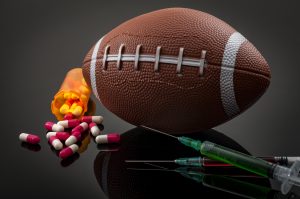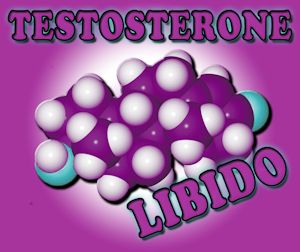Video Link: https://vimeo.com/282903476
Video Download: Click Here To Download Video
Video Stream: Click Here To Stream Video

Testosterone deficiency is a worldwide health issue that impacts millions upon millions of men across the globe. The world health organization estimates that 152 million males suffer from low-t.
There are researchers and scientists from every major country on earth working on treatments and strategies to treat low-t and andropause so that men can live healthier and longer lives, as well as achieve restored sexual ability and satisfaction.
Age-related hypogonadism is common and widespread, and your risk of experiencing issues related to low-t only increases as you grow older.
Low-T is a Condition, not a Disease
It's important to realize that andropause, though treatable and correctable, is distinctly correlated with the aging process. Testosterone deficiency is not caused by a virus or bacteria, nor is it a malfunction of the human body.
It's a slow but steady decline in hormone balance which negatively impacts wellness and sexual health. Another name for this condition is hypoandrogenic deficiency syndrome.
Testosterone levels follow a predictable pattern throughout the lifespan of the average male. Testosterone production naturally spikes during the formation of primary sex characteristics in the womb, and at the onset of puberty.
After puberty has completed, testosterone levels reach an elevated, healthy plateau that is associated with some favorable characteristics — assertiveness, sexual health, healthy muscle-fat ratio, and high energy.
Beginning at about age 30, the body slowly experiences a drain in testosterone production which, over the course of many years, leads to testosterone levels that are no longer able to sustain prime, optimal health in men.
Most guys think of sexual health and dysfunction when it comes to testosterone and low-t, but the condition is statistically correlated with quite a few issues which are unhealthy and can significantly increase mortality risk, including hypertension, obesity, elevated cholesterol, diabetes, and more.
Who is at the Highest Risk of Low-T?
Though all men experience declining testosterone levels as they age, there are some factors that increase the risk and severity of low-t.
Men with erectile dysfunction, low libido, obesity, and type-2 diabetes are at very high risk for testosterone deficiency, as well as those with a sedentary lifestyle, those that smoke, and those that take opiates or other painkillers for the treatment of chronic pain.

How Widespread are Testosterone Deficiency and Erectile Dysfunction?
Low-t is a vast global medical issue. Among men between the ages of 20 and 75, nearly one in six males suffer from hypogonadism.
As life expectancies continue to grow worldwide, and as lifestyle habits change in developing nations, cases of low-t and erectile dysfunction are expected to increase at a rapid rate. It's estimated that in the next eight years, the number of cases of erectile dysfunction will more than double.
Many Men Don't Get the Low-T Treatment that They Need
Though testosterone deficiency has such a substantial impact on the quality of life, most males don't get treated. Only around 15-20% of men with erectile dysfunction receive medical treatment for their sexual issues.
Furthermore, erectile dysfunction is strongly correlated with both anxiety and depression, which affects around a quarter of males struggling with the condition. It's sad that low-t and ED can be treated so quickly, and have such a profound effect on wellness, but are addressed so insufficiently.
Avoid Low-T Pills and Supplements — Only Use Prescription Testosterone
When considering testosterone therapy, it's important only to use treatments that are guaranteed to work. Many websites, infomercials, nutrition stores, and armchair specialists claim that testosterone supplements and pills are the keys to resolving low-t issues.
Understand that this is not the case. Many of these products are available over the counter, but that doesn't mean that they are safe or that they even work.

Testosterone pills and other forms of an oral testosterone supplement aren't beneficial because the body cannot properly absorb testosterone through the digestive system.
If you research bio-identical prescription testosterone, you'll find that all current treatments are delivered in a method that bypasses the gastrointestinal tract so that testosterone can make its way directly to the bloodstream.
There's always going to be that urge to side-step the rules and try to make things easy, but remember that easily doesn't mean safe and that the non-clinical route will not adequately treat your low-t.
Always work with a licensed medical professional that understands your needs.
Revolutionary Andropause and Hypogonadism Treatments
As of today, there are some low-t treatments available, among which are testosterone patches, low-t creams, transdermal testosterone pellets, and low-t injections.
Patches and creams offer a transdermal infusion of testosterone which must be applied daily. Testosterone pellets are a treatment which supplies testosterone steadily for months, but it requires an outpatient surgery.
Hypogonadism injections, such as Testosterone Cypionate and Testosterone Enanthate are popular treatment options that provide 10-14 days of testosterone in a single dose.
Low-T Treatment with Testosterone Undecanoate
All of these testosterone treatment options are valid, but endocrinologists, urologists, and medical researchers continue to look for ways to improve and expand treatment options.
For example, during a recent conference in Egypt, scientists unveiled a new form of testosterone injection that provides an extended dose that lasts for months and provides a steady and predictable release of testosterone for the duration of the bio-identical hormone's presence in the bloodstream.
One doctor from Cairo University named Bahgat Metawee believes that long-acting testosterone injections like Testosterone Undecanoate will be the next wave of andropause care.
Though all forms of prescription testosterone on the market today provide relief from testosterone deficiency and do lead to a marked and significant improvement in health and quality of life, there are always ways to improve and enhance current andropause technology.
For example, testosterone creams and patches can both lead to skin irritation in some patients. Also, these products must be used with care because of the risk of testosterone transmission through physical contact with others.
Current injection treatments like Testosterone Cypionate work well, but serum testosterone can fluctuate over the duration of the medication's activity.
In coming years, new advancements in low-t treatment will likely lead to the widespread co-option of a new testosterone therapy option — Testosterone Undecanoate — which will only require four doses annually, while also providing a constant supply of testosterone to relieve the symptoms of low-t with minimal hassle and maximum effectiveness.
Contact Our Hormone Clinic if You are Interested in the Latest Testosterone Treatments!
At our board-certified HRT clinic, we are dedicated to treating testosterone deficiency and other forms of hormone imbalance thoughtfully and with integrity.
We've helped men across America receive quality testosterone therapy from a provider they can trust. If you'd like to know more about the HRT treatments that we provide, or if you'd like to have a free consultation with one of our hormone specialists, we encourage you to contact us today!
Contact Us Today For A Free Consultation

- BioSante Pharmaceuticals, Inc. to Present at BIO Investor Forum [Last Updated On: March 16th, 2025] [Originally Added On: October 9th, 2012]
- Secondary osteoporosis: More than what meets the eye! [Last Updated On: March 16th, 2025] [Originally Added On: October 10th, 2012]
- Trimel Provides Clinical and Operational Update [Last Updated On: March 16th, 2025] [Originally Added On: October 15th, 2012]
- Obese teen boys likelier to become impotent and infertile adults [Last Updated On: March 16th, 2025] [Originally Added On: October 17th, 2012]
- Obese teen boys have up to 50 percent less testosterone than lean boys [Last Updated On: March 16th, 2025] [Originally Added On: October 17th, 2012]
- Trimel Reports Physician Market Research Results for CompleoTRT(TM) [Last Updated On: March 16th, 2025] [Originally Added On: October 24th, 2012]
- Obese teen boys likelier to turn into 'impotent' men [Last Updated On: March 16th, 2025] [Originally Added On: October 24th, 2012]
- Trimel Pharmaceuticals Corporation to Report Third Quarter 2012 Results and Host a Conference Call to Update Investors [Last Updated On: March 16th, 2025] [Originally Added On: November 2nd, 2012]
- Peer Exchange: Establishing Bone Health Clinics - Video [Last Updated On: March 16th, 2025] [Originally Added On: November 2nd, 2012]
- What is hypogonadism and how does it affect fertility? - Video [Last Updated On: March 16th, 2025] [Originally Added On: November 2nd, 2012]
- Low Testosterone in Men or Man-O-Pause - Video [Last Updated On: March 16th, 2025] [Originally Added On: November 2nd, 2012]
- Propecia (Finasteride) -- Undisclosed Mechanisms, Potential Dangers [Last Updated On: March 16th, 2025] [Originally Added On: November 2nd, 2012]
- How to Get Ripped - Why You Shouldnt Use Anabolic Steroids - Video [Last Updated On: March 16th, 2025] [Originally Added On: November 2nd, 2012]
- Future Doc: Andropause Alternatives with Dr. James Biddle Part 1 - Video [Last Updated On: March 16th, 2025] [Originally Added On: November 2nd, 2012]
- Increase Testosterone Naturally With these Diet And Workout Secrets - Video [Last Updated On: March 16th, 2025] [Originally Added On: November 2nd, 2012]
- Sector Update: Healthcare - Video [Last Updated On: March 16th, 2025] [Originally Added On: November 2nd, 2012]
- Signs And Symptoms of Hypogonadism [Last Updated On: March 16th, 2025] [Originally Added On: November 2nd, 2012]
- Auxilium and Pfizer Will Conclude Agreement on XIAPEX® EU Collaboration [Last Updated On: March 16th, 2025] [Originally Added On: November 9th, 2012]
- Repros Therapeutics Inc.(R) Reports Third Quarter 2012 Financial Results [Last Updated On: March 16th, 2025] [Originally Added On: November 14th, 2012]
- hypogonadotropic hypogonadism - Video [Last Updated On: March 16th, 2025] [Originally Added On: November 22nd, 2012]
- Research and Markets: Male Hypogonadism - Pipeline Review, H2 2012 [Last Updated On: March 16th, 2025] [Originally Added On: November 30th, 2012]
- Auxilium Pharmaceuticals, Inc. to Present At The Oppenheimer 23rd Annual Growth Conference [Last Updated On: March 16th, 2025] [Originally Added On: December 8th, 2012]
- Low Testosterone (Hypogonadism) - Part 2 - Video [Last Updated On: March 16th, 2025] [Originally Added On: December 10th, 2012]
- The National Mesothelioma Law Firm of Baron and Budd Reports on a New Drug that Could Improve the Health of ... [Last Updated On: March 16th, 2025] [Originally Added On: December 19th, 2012]
- Hypogonadism ¦ Treatment and Symptoms - Video [Last Updated On: March 16th, 2025] [Originally Added On: March 7th, 2013]
- Research and Markets: Male Hypogonadism Global Clinical Trials Review, H1, 2013 [Last Updated On: March 16th, 2025] [Originally Added On: May 1st, 2013]
- Male hypogonadism Prof Ossama Fouda - Video [Last Updated On: March 16th, 2025] [Originally Added On: May 9th, 2013]
- Low Testosterone (Hypogonadism) - Part 3 - Video [Last Updated On: March 16th, 2025] [Originally Added On: July 2nd, 2013]
- Hypogonadism - what should you do - Video [Last Updated On: March 16th, 2025] [Originally Added On: July 2nd, 2013]
- NURS805 Hypogonadism Lecture - Video [Last Updated On: March 16th, 2025] [Originally Added On: August 16th, 2013]
- Hypogonadism: MedlinePlus Medical Encyclopedia [Last Updated On: March 16th, 2025] [Originally Added On: November 3rd, 2013]
- Hypogonadism - Diseases & Conditions - Medscape Reference [Last Updated On: March 16th, 2025] [Originally Added On: November 10th, 2013]
- Hypogonadotropic hypogonadism - Wikipedia, the free encyclopedia [Last Updated On: March 16th, 2025] [Originally Added On: November 10th, 2013]
- Low Testosterone (Low-T) Normal Levels, Hypogonadism, Symptoms ... [Last Updated On: March 16th, 2025] [Originally Added On: November 15th, 2013]
- HYPOGONADISM - University of Dundee [Last Updated On: March 16th, 2025] [Originally Added On: November 23rd, 2013]
- FAQ - Hypogonadism - MEDICAL DIAGNOSIS AND MEDICINAL PLANTS [Last Updated On: March 16th, 2025] [Originally Added On: November 23rd, 2013]
- Hypogonadism - About.com Men's Health [Last Updated On: March 16th, 2025] [Originally Added On: December 2nd, 2013]
- Exciting medical advances using HRT [Last Updated On: March 16th, 2025] [Originally Added On: December 12th, 2013]
- Male hypogonadism: Symptoms - MayoClinic.com [Last Updated On: March 16th, 2025] [Originally Added On: December 12th, 2013]
- Audio-Digest Foundation Announces the Release of Oncology Volume 04, Issue 16: Highlights from Future Directions ... [Last Updated On: March 16th, 2025] [Originally Added On: December 15th, 2013]
- Hypogonadism - Medscape Reference [Last Updated On: March 16th, 2025] [Originally Added On: December 21st, 2013]
- Hypogonadism [Last Updated On: March 16th, 2025] [Originally Added On: December 23rd, 2013]
- Hypogonadism - HealthCentral [Last Updated On: March 16th, 2025] [Originally Added On: December 24th, 2013]
- Hypogonadism | Medscape - Latest Medical News, Clinical Trials ... [Last Updated On: March 16th, 2025] [Originally Added On: December 30th, 2013]
- Hypogonadism - SharedJourney [Last Updated On: March 16th, 2025] [Originally Added On: January 23rd, 2014]
- Study Finds Potential Heart Risks from Testosterone Therapy [Last Updated On: March 16th, 2025] [Originally Added On: February 3rd, 2014]
- Endocrine Society calls for large-scale studies to evaluate testosterone therapy risks [Last Updated On: March 16th, 2025] [Originally Added On: February 8th, 2014]
- Testosterone Therapy Not Always Good for Older Men [Last Updated On: March 16th, 2025] [Originally Added On: February 11th, 2014]
- Hypogonadism: Types, Causes, & Symptoms Healthline [Last Updated On: March 16th, 2025] [Originally Added On: February 14th, 2014]
- Low Testosterone (Hypogonadism) in Men - Video [Last Updated On: March 16th, 2025] [Originally Added On: February 14th, 2014]
- Hypogonadism : Types, Causes, & Symptoms - Healthline [Last Updated On: March 16th, 2025] [Originally Added On: February 17th, 2014]
- Hypogonadism | Medscape - Latest Medical News, Clinical ... [Last Updated On: March 16th, 2025] [Originally Added On: February 23rd, 2014]
- Endo: FDA Oks AVEED Injection For Treatment Of Adult Men With Hypogonadism [Last Updated On: March 16th, 2025] [Originally Added On: March 6th, 2014]
- Unit Project 1 Hypogonadotropic hypogonadism - Video [Last Updated On: March 16th, 2025] [Originally Added On: March 8th, 2014]
- Update on Endo's Product Portfolio - Analyst Blog [Last Updated On: March 16th, 2025] [Originally Added On: March 11th, 2014]
- Male hypogonadism Symptoms - Diseases and Conditions ... [Last Updated On: March 16th, 2025] [Originally Added On: April 2nd, 2014]
- Hypogonadism: Types, Causes, & Symptoms - Medical ... [Last Updated On: March 16th, 2025] [Originally Added On: April 6th, 2014]
- VLog #127 Frances Explains Hypogonadism. - Video [Last Updated On: March 16th, 2025] [Originally Added On: April 7th, 2014]
- Repros Completes Enrollment for Androxal Study - Analyst Blog [Last Updated On: March 16th, 2025] [Originally Added On: April 16th, 2014]
- Prevalence, Diagnosis and Treatment of Hypogonadism in ... [Last Updated On: March 16th, 2025] [Originally Added On: April 30th, 2014]
- Repros Therapeutics Q2 Loss a Penny Wider than Expected - Analyst Blog [Last Updated On: March 16th, 2025] [Originally Added On: August 12th, 2014]
- Repros Reports Encouraging Late-Stage Data on Androxal - Analyst Blog [Last Updated On: March 16th, 2025] [Originally Added On: August 28th, 2014]
- Repros Therapeutics Analyst Brief Report; Androxal(R) Achieves Superiority in Top Line Analysis by Small Cap Street ... [Last Updated On: March 16th, 2025] [Originally Added On: September 30th, 2014]
- The Wall Street Journal: Repros Therapeutics shares drop on drug application setback [Last Updated On: March 16th, 2025] [Originally Added On: October 18th, 2014]
- Apricus expands development pipeline with in-licensing of US rights for fispemifene [Last Updated On: March 16th, 2025] [Originally Added On: October 21st, 2014]
- Apricus expands development pipeline with the in-licensing of US rights for fispemifene, a phase 2b ready asset, from ... [Last Updated On: March 16th, 2025] [Originally Added On: October 21st, 2014]
- Hypogonadism No Moustache! No Beard!! [Last Updated On: March 16th, 2025] [Originally Added On: October 28th, 2014]
- Male Hypogonadism: Male Reproductive Endocrinology: Merck ... [Last Updated On: March 16th, 2025] [Originally Added On: October 28th, 2014]
- Hypogonadism Wikipedia [Last Updated On: March 16th, 2025] [Originally Added On: October 28th, 2014]
- Urology Care Foundation - Urology A-Z - Low Testosterone [Last Updated On: March 16th, 2025] [Originally Added On: November 3rd, 2014]
- Will Repros (RPRX) Miss Estimates This Earnings Season? - Analyst Blog [Last Updated On: March 16th, 2025] [Originally Added On: November 5th, 2014]
- Hypogonadism in men living with HIV - Video [Last Updated On: March 16th, 2025] [Originally Added On: November 7th, 2014]
- Male Hypogonadism Therapeutic Pipeline Industry Review, H2 2014 - Video [Last Updated On: March 16th, 2025] [Originally Added On: November 7th, 2014]
- Testosterone Deficiency (Hypogonadism) Overview ... [Last Updated On: March 16th, 2025] [Originally Added On: November 23rd, 2014]
- Endo to Acquire Rights to Testosterone Nasal Gel Natesto - Analyst Blog [Last Updated On: March 16th, 2025] [Originally Added On: November 26th, 2014]
- Male hypogonadism pathophysiology - Video [Last Updated On: March 16th, 2025] [Originally Added On: January 14th, 2015]
- Auxilium Announces Results from Special Meeting of Stockholders [Last Updated On: March 16th, 2025] [Originally Added On: January 28th, 2015]
- What is Hypogonadism - Symptoms and Treatment | Hormone ... [Last Updated On: March 16th, 2025] [Originally Added On: January 30th, 2015]
- Male Hypogonadism 1/28/15 - Video [Last Updated On: March 16th, 2025] [Originally Added On: January 31st, 2015]
- Male hypogonadism: symptoms, cause, treatment, risk ... [Last Updated On: March 16th, 2025] [Originally Added On: February 18th, 2015]
Word Count: 1140




















